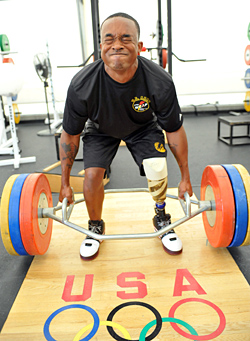212 Degrees: The Difference Between Olympic Gold And Silver
July 30, 2012 by Chaffee-Thanh Nguyen
Filed under Coaching, Personal Development
As the 2012 Olympics take place in London this year, I’m reminded of a great book out there called 212 Degrees. 212 degrees is a very significant number. For those of you that don’t know (and I didn’t before I read the book – or at least I forgot about it), at 211 degrees, water is hot – very hot. At 212 degrees though, water boils. “And with boiling water, comes steam. And steam can power a locomotive.”
Hello! The book goes on to say that “raising the temperature of water by one extra degree means the difference between something that is simply very hot and something that generates enough force to power a machine – a beautiful, uncomplicated metaphor that ideally should feed our every endeavor – consistently pushing us to make that extra effort in every task we undertake… it reminds us that seemingly small things can make tremendous differences.” Wow!
What have you done in the past where you know that if you would have just pushed yourself one extra degree, you would have had totally different results? What are you working on right now that could dramatically change if you just worked that one extra degree, made that small extra effort necessary to reach a desired result? How different would your life be right now if you lived your entire life this way?
During the Olympics, the difference between Silver and Gold can sometimes be less than 100th of a second. It’s crazy! Imagine if the silver medalist just had one more degree of effort in them every day until the Olympics. Would they have gotten gold? No one knows for sure and when you’re working out, working on a project, developing something new, ask yourself, can I give it one more degree of effort?
Right here, right now, you can make that decision. “212 Degrees is not only a message of action – it’s a message of persistent and additional action – the continual application of heat (effort) to whatever task or activity you undertake in order to achieve not only the primary objective you seek, but to reap the exponential rewards that are possible by applying one extra degree of effort.”
You are now aware of 212 Degrees. You now have a target for everything you do and
Celebrate Life,
Chaffee-Thanh Nguyen

